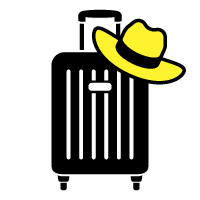Amadeus CEO on the Future of Travel: 'We Need to Keep Investing'

Skift Take

Leaders of Travel: Skift C-Suite Series
What are the top trends impacting hotels, airlines, and online bookings? We speak to the executives shaping the future of travel.The travel industry has gone through a lot since Luis Maroto started working at Amadeus almost 25 years ago.
The growth of the internet fundamentally changed how the industry operates: The largest travel agencies are online, and low-cost airlines are bigger than ever, for example.
Now, there's another industry-wide technology transformation as travel moves to modernize and adopt AI. That’s means Amadeus needs to adapt once again.
“We will become obsolete in some years from now because technology is evolving all the time, so we need to keep investing. We need to keep being ahead of any other company that can bring innovation,” said Maroto, who became president and CEO of the company in 2011.
Amadeus owns the world’s largest global distribution system (GDS), which aggregates fares and other information from airlines and shares it with travel sellers. The company has also been growing businesses in tech for airlines, hotels, airports, and more.
Skift spoke with Maroto about the future of Amadeus — both the GDS and other areas of the company — and efforts to adapt with the times.
How Do You See the Future of the GDS?There have been rumblings for years that Amadeus and its competitors will become obsolete in the future as stakeholders look to circumvent the intermediary.
American Airlines is recovering from its failed attempt to cut Amadeus and others out of its distribution strategy. Now Turkish Airlines is trying a similar approach, charging a fee to travel sellers that don’t use the airline’s individual distribution system.
Most recently, the latest advancements in AI have led to predictions that future autonomous digital agents could remove the need for intermediaries.
Despite how the industry changes, Maroto believes there is a clear role fo

